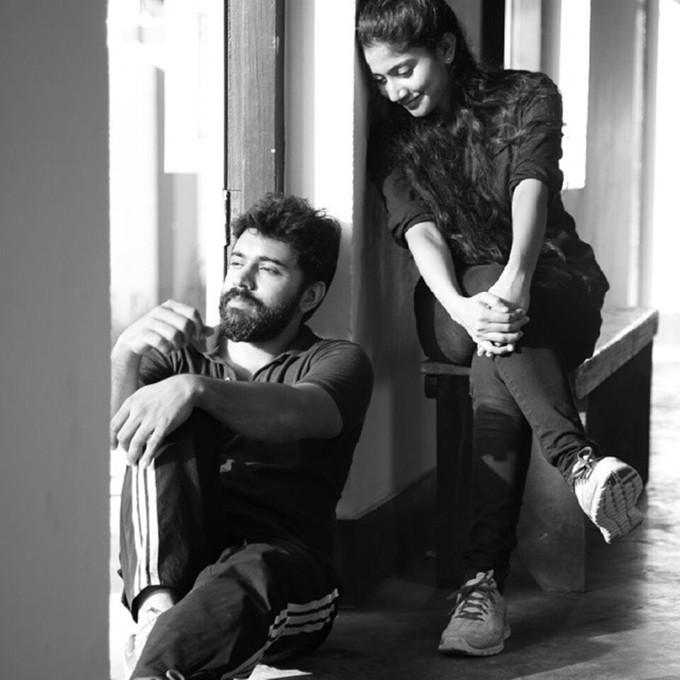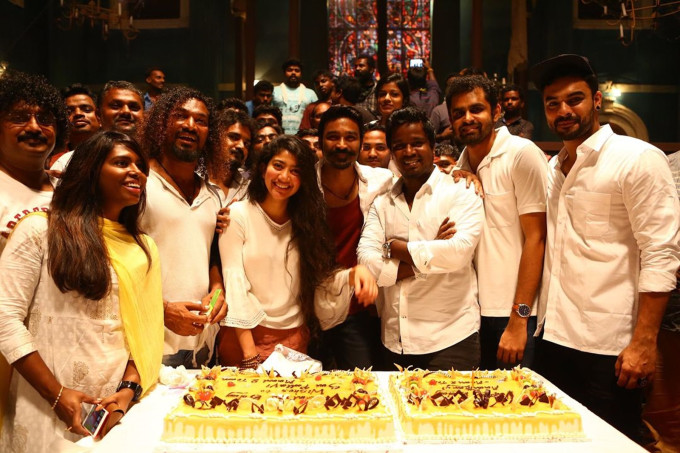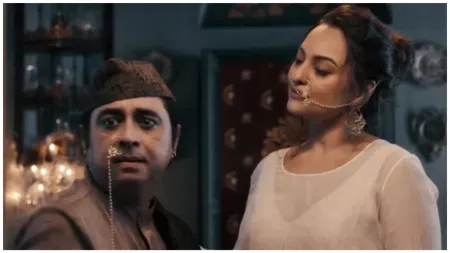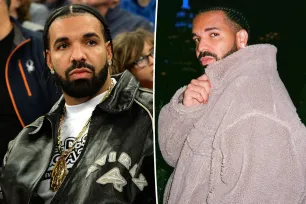The image of a saree-clad Sai Pallavi walking up to a ‘tough-looking’ Nivin Pauly after he called her over to rag her, only to discover that she’s a newly appointed guest lecturer at his college, is unlikely to disappear from the minds of those who have watched the Malayalam blockbuster Premam (2015). At that moment, she not only stepped into the spotlight of a cinema frame for the first time, having previously appeared only as a background artiste in Tamil films Kasthuri Maan (2005) and Dhaam Dhoom (2008), but also captured the affection of millions of movie lovers instantaneously, before eventually becoming a benchmark for many things.
Born on May 9, 1992, into a Badaga family settled in Coimbatore, Tamil Nadu, with no prior connections to the film industry, Pallavi is currently among the most sought-after and promising actors in South India, or one could even argue, in the entire country. Hailing from an ethno-linguistic community with roots in Kotagiri in the Nilgiris district of Tamil Nadu, Pallavi’s journey has been nothing short of spectacular.

Cinema Anatomy | With Varshangalkku Shesham, Nivin Pauly joins ranks of Mammootty, Kamal Haasan, Shah Rukh Khan
Since her debut in a lead role nine years ago, Sai Pallavi, who turns 32 on Thursday, has appeared in only 14 movies and interestingly, she didn’t have any releases last year. Nevertheless, what’s truly fascinating is that each of these 14 films has, in one way or another, significantly propelled her career, enabling her to leave a lasting impact on viewers. She has never been just a presence without purpose. In other words, she either selects roles where her character contributes substantially to the narrative and isn’t just a superficial addition, or filmmakers specifically approach her for meaty roles, or whenever there’s a substantial role, she’s their preferred choice. Whatever the reason may be, Sai Pallavi has deeply etched her name in the hearts of cinema lovers in a manner her contemporaries couldn’t even dream of.
In fact, by embracing a diverse range of roles, refusing to be constrained by stereotypes or accepting superficial characters relegated solely to romantic subplots, Pallavi has carved out a name for herself, akin to Anushka Shetty in the past decade. With speculation mounting that Pallavi has been roped in to portray Goddess Sita in Nitesh Tiwari’s adaptation of the Hindu epic Ramayana, film enthusiasts speculate that this role could offer her a transformative opportunity akin to how monumental projects like Arundhati (2009), the Baahubali films (2015, 2017) and Rudhramadevi (2015) propelled Anushka’s career by multiple folds. Despite not being officially confirmed yet, Ramayana’s inherent grandiosity and the hype surrounding it already suggest its potential to significantly enhance Pallavi’s stature in the industry.
 Sai Pallavi with her Premam co-star Nivin Pauly. (Image: Sai Pallavi/Instagram)
Sai Pallavi with her Premam co-star Nivin Pauly. (Image: Sai Pallavi/Instagram)
It’s not just Pallavi’s film choices that have endeared her to viewers, but also the spellbinding manner in which she handles her characters. By immersing herself in the psyche of her roles, extracting their most profound emotions and effortlessly showcasing them, Sai Pallavi’s performances are truly inspiring.
In Premam, Pallavi’s character Malar, a college lecturer entangled in a star-crossed relationship with her student George (Nivin), deviated from the typical romantic heroine tropes. Malar was depicted as a subdued character, and their love story unfolded discreetly, away from the public eye, unnoticed by others. Owing to the absence of traditional romantic moments, Malar and George conveyed their affection through subtle gestures and meaningful glances. At a time when romance film heroines were often constrained by rigid templates and beauty standards influenced by Western and/or savarna ideals, Pallavi skillfully portrayed a character in a mature relationship between two adults (special emphasis on the word “adults” here) in the Alphonse Puthren directorial. Amidst a cinematic landscape that prioritised Manic Pixie Dream Girls (MPDG) and damsels in distress in romance films, Sai Pallavi’s portrayal of Malar as a realistic and mature character, as well as her appearance and beauty which resonated deeply with a large section of the society, was a notable departure from the norm, a feat she accomplished with remarkable proficiency.
 Sai Pallavi with actors Dhanush and Tovino Thomas and others on the sets of their Maari 2. (Image: Sai Pallavi/Instagram)
Sai Pallavi with actors Dhanush and Tovino Thomas and others on the sets of their Maari 2. (Image: Sai Pallavi/Instagram)
In Sameer Thahir’s Kali (2016), Pallavi once again demonstrated her talent by portraying Anjali — a woman whose life is a rollercoaster due to her husband Siddharth’s (Dulquer Salmaan) struggles with anger management — with precision. In contrast to her role in Premam, Pallavi’s character here tackled a wider array of emotions, ranging from happiness, love and care to sorrow, distress and frustration — all of which she navigated with remarkable finesse.
Even when she entered Telugu cinema the following year, despite the industry’s reputation for shallow portrayals of women and pervasive misogyny, Pallavi did not fall into that trap and made a dream-like debut with a lead role in Happy Days’ director Sekhar Kammula’s romantic comedy Fidaa (2017), where her character held as much substance and prominence as the male lead portrayed by Varun Tej, who hails from the affluent Allu-Konidela family, if not more.
View this post on Instagram
A post shared by Sai Pallavi (@saipallavi.senthamarai)
Amidst the success of Premam and Fidaa, another factor that endeared her to viewers, besides acting, was her adeptness in dance. Her exceptional movements in tracks such as “Rockaankuthu” and “Vachinde”, where she flawlessly executed intricate steps with such ease, left audiences in awe. What truly enhanced the allure of these dance numbers was her ability to maintain the emotional depth of the characters while delivering impeccable choreography.
Though her next outing, Middle Class Abbayi, released the same year, did not receive much acclaim due to its stale plot, 2018 witnessed Sai Pallavi venturing out of her comfort zone, exploring diverse character types, film genres, and scales. With her performance in AL Vijay’s horror film Diya, wherein she played a mother struggling with the guilt of aborting her fetus, Pallavi demonstrated her versatility beyond romantic roles. Even in potentially melodramatic situations, Sai Pallavi maintained a measured portrayal, fully embodying her character with subtlety and depth. Her roles and performances in Hanu Raghavapudi’s Padi Padi Leche Manasu and Balaji Mohan’s Dhanush-starrer Maari 2 also stand as a testament to this. Despite the films lacking distinctive identities and giving off the vibe that they were cut from the same cloth as similar movies in the past, with the female characters evoking a strong sense of déjà vu, Pallavi defied expectations and conventional portrayals, something that only Anushka Shetty has managed to do in recent times, thus carving her own path in the industry. And who can forget the iconic “Rowdy Baby” track in Maari 2, where Pallavi’s dance performance overshadowed Dhanush’s?
Playing an autistic Kalari artiste in Vivek’s psychological thriller Athiran, she further stretched her limits and tapped into her own untapped potential. Portraying a character who has difficulties communicating verbally and can only do so through physical gestures, Sai Pallavi showcased her versatility and true potential, delivering a performance on par with her co-star Fahadh Faasil, revered nationwide as one of the finest of the present era. The same year, she appeared alongside Suriya in Selvaraghavan’s NGK (Nandha Gopalan Kumaran) and earned praise for her portrayal, although the movie failed to make significant waves.
Nevertheless, Pallavi showcased her absolute A-game not in a full-length feature film, but in the segment “Oor Iravu“, directed by Vetrimaaran, in the anthology movie Paava Kadhaigal. Playing a pregnant woman who had previously been estranged from her family after eloping with her lover from a lowered caste but has now reunited with her community, Sai Pallavi delivered a standout performance, exceptionally tackling a myriad of emotions her character went through. Her commanding and precise portrayal, especially in scenes shared with veteran actor Prakash Raj, who played her casteist father, demonstrated her mastery of the role. At the same time, her decision to take on such a challenging segment in an anthology, while other films merely skimmed the surface of their themes, highlighted her astuteness as an actor.
Cinema Anatomy | Samantha Ruth Prabhu: The source of a stellar charm that remains unwaning
Pallavi reunited with Fidaa helmer Sekhar Kammula once again for the romantic musical Love Story (2021), starring alongside Naga Chaitanya. Once again, she showcased brilliant chemistry with her co-star, reaffirming her unparalleled talent in that area. In Rahul Sankrityan’s period romantic drama Shyam Singha Roy, she put to use all the arrows in her quiver, including her skills in acting, dancing, dialogue delivery and stunning beauty, delivering a mesmerising performance despite the film’s shortcomings in other areas.
Venu Udugula’s Virata Parvam (2022), meanwhile, underscored Sai Pallavi’s growth and her ability to tackle demanding roles, marked by tumultuous emotional and physical journeys, typically reserved for male actors. Portraying Vennela, who becomes involved with a Naxalite ideologue and subsequently the movement, Pallavi demonstrated her ability to tackle physically demanding roles, action sequences included, that defy traditional feminine stereotypes. In Gautham Ramachandran’s Gargi (2022), on the other hand, which received immense praise, Pallavi redefined portraying distressed characters by delivering a nuanced performance without resorting to exaggerated emotions or maintaining a stoic demeanour, striking the right balance in her portrayal.
Now, while she gears up for the release of her biographical movie Amaran and the actioner thriller Thandel, based on a true incident, rumours are also rife that she is playing Goddess Sita in Nitesh Tiwari’s Ramayana, alongside Ranbir Kapoor who reportedly plays Lord Ram. At the same time, hype surrounding this casting choice is notably high, as many believe it to be an excellent fit considering her acting skills and capacity to tackle complex roles.
Disclaimer: The copyright of this article belongs to the original author. Reposting this article is solely for the purpose of information dissemination and does not constitute any investment advice. If there is any infringement, please contact us immediately. We will make corrections or deletions as necessary. Thank you.







